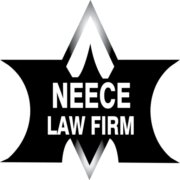Best Housing, Construction & Development Lawyers in North Carolina
Share your needs with us, get contacted by law firms.
Free. Takes 2 min.
Free Guide to Hiring a Real Estate Lawyer
Or refine your search by selecting a city:
List of the best lawyers in North Carolina, United States
About Housing, Construction & Development Law in North Carolina, United States
Housing, construction, and development law in North Carolina refers to the legal frameworks and regulations that govern the building, sale, lease, and management of residential and commercial properties. This area of law covers matters related to zoning, land use, building codes, permits, property transactions, contracts for construction projects, landlord-tenant relationships, homeowners associations, and more. The state’s statutes, local ordinances, and case law work together to ensure safe construction, fair housing practices, and orderly development across communities.
Why You May Need a Lawyer
Legal assistance in housing, construction, and development is often necessary when issues arise during property transactions, construction projects, or rental agreements. You may need a lawyer for:
- Reviewing or drafting construction and real estate contracts
- Resolving disputes with builders, contractors, or property owners
- Addressing zoning and land use challenges
- Handling mechanic’s or materialman’s liens
- Navigating landlord-tenant disagreements, including evictions
- Understanding property development requirements and environmental regulations
- Defending against code violations or lawsuits
- Assisting with affordable housing development or municipal regulations
Local Laws Overview
North Carolina’s housing, construction, and development law is shaped by state statutes such as the North Carolina General Statutes (Chapters 42 for landlord-tenant law, 47 for real estate, 87 for contractors), the North Carolina State Building Code, local zoning ordinances, and federal regulations such as the Fair Housing Act.
Key points include:
- North Carolina has specific licensing requirements for general contractors and specialty trades.
- Zoning and land use regulations are typically managed by local city and county governments, and policies can vary widely.
- Landlord-tenant law defines responsibilities for security deposits, lease agreements, eviction procedures, and tenant rights.
- The Mechanic’s Lien Law (N.C.G.S. Chapter 44A) allows contractors and material suppliers to file liens if they are unpaid for construction work.
- Developers must often obtain multiple permits - including building, stormwater, and occupancy permits - before beginning a project.
- Building codes ensure minimum construction standards for safety, health, and accessibility.
Frequently Asked Questions
What is required to obtain a building permit in North Carolina?
Most new construction, major renovations, and some repairs require a building permit from your local city or county building department. Applicants must submit detailed plans, pay fees, and schedule inspections to verify work meets code standards.
How does the mechanic’s lien process work?
If a contractor or supplier has not been paid, they may file a mechanic’s lien on the property. Certain notice and filing deadlines must be met. This lien can complicate property sales or refinancing and may result in foreclosure if unresolved.
What are my rights as a tenant if my landlord will not make repairs?
North Carolina law requires landlords to maintain safe and habitable rental units. If a landlord refuses necessary repairs after written notice, tenants may be entitled to repair and deduct, withhold rent, or pursue action in court.
What should be included in a construction contract?
A solid construction contract should state project scope, timeline, payment schedule, warranties, dispute resolution procedures, and responsibilities for permits and inspections. Always have contracts reviewed by a lawyer before signing.
Can my homeowners association (HOA) restrict how I use my property?
Yes, if you are subject to a homeowners association, your rights and property usage are governed by the community’s covenants, conditions, and restrictions (CC&Rs), as well as applicable state statutes.
How do zoning laws affect property development?
Zoning laws determine how land can be used (residential, commercial, industrial, etc.) and set standards for building size, setbacks, density, and more. You may need a variance or special use permit for certain projects.
Is it possible to evict a tenant without a court order in North Carolina?
No. North Carolina requires landlords to follow formal legal procedures, including notice and a court hearing, before evicting a tenant. Self-help evictions, such as changing locks or shutting off utilities, are illegal.
Are there protections against housing discrimination?
Yes. State and federal laws, including the Fair Housing Act, prohibit discrimination in housing on the basis of race, color, national origin, religion, sex, disability, or family status. North Carolina also protects against discrimination for other reasons in certain contexts.
Who is responsible for code violations during a construction project?
Responsibility depends on the contract terms, but generally, the property owner and contractor may both be liable for ensuring compliance with building codes and correcting any violations found during inspections.
What steps are necessary to subdivide property or develop a new subdivision?
Subdividing land or developing subdivisions typically involves several approval steps, including preliminary plat review, public hearings, compliance with zoning, infrastructure requirements, and final recording with the county register of deeds.
Additional Resources
If you need more information or support, these resources can be helpful:
- North Carolina Department of Justice - Consumer Protection Division
- North Carolina Department of Insurance - Office of the State Fire Marshal (Building Code Council)
- North Carolina Real Estate Commission
- North Carolina Housing Finance Agency
- Local city or county planning and inspections departments
- Legal Aid of North Carolina (for those who qualify)
- North Carolina Bar Association Lawyer Referral Service
Next Steps
If you believe you need legal help with a housing, construction, or development issue in North Carolina:
- Gather all relevant documents, such as contracts, leases, letters, permits, photographs, and inspection reports.
- Identify the specific issue you are facing and make a brief timeline of events.
- Contact a qualified lawyer who practices housing, construction, or real estate law. Many attorneys offer initial consultations.
- Consider using a lawyer referral service or checking with local legal aid organizations if you have limited income.
- Discuss your concerns and goals clearly with your lawyer and ask about potential costs and timeframes.
- Follow your lawyer’s advice and take steps to protect your legal rights throughout the process.
Addressing legal issues early can prevent complications, protect your investment, and ensure your project or housing situation proceeds smoothly.
Lawzana helps you find the best lawyers and law firms in North Carolina through a curated and pre-screened list of qualified legal professionals. Our platform offers rankings and detailed profiles of attorneys and law firms, allowing you to compare based on practice areas, including Housing, Construction & Development, experience, and client feedback.
Each profile includes a description of the firm's areas of practice, client reviews, team members and partners, year of establishment, spoken languages, office locations, contact information, social media presence, and any published articles or resources. Most firms on our platform speak English and are experienced in both local and international legal matters.
Get a quote from top-rated law firms in North Carolina, United States — quickly, securely, and without unnecessary hassle.
Disclaimer:
The information provided on this page is for general informational purposes only and does not constitute legal advice. While we strive to ensure the accuracy and relevance of the content, legal information may change over time, and interpretations of the law can vary. You should always consult with a qualified legal professional for advice specific to your situation.
We disclaim all liability for actions taken or not taken based on the content of this page. If you believe any information is incorrect or outdated, please contact us, and we will review and update it where appropriate.
Browse housing, construction & development law firms by city in North Carolina
Refine your search by selecting a city.













